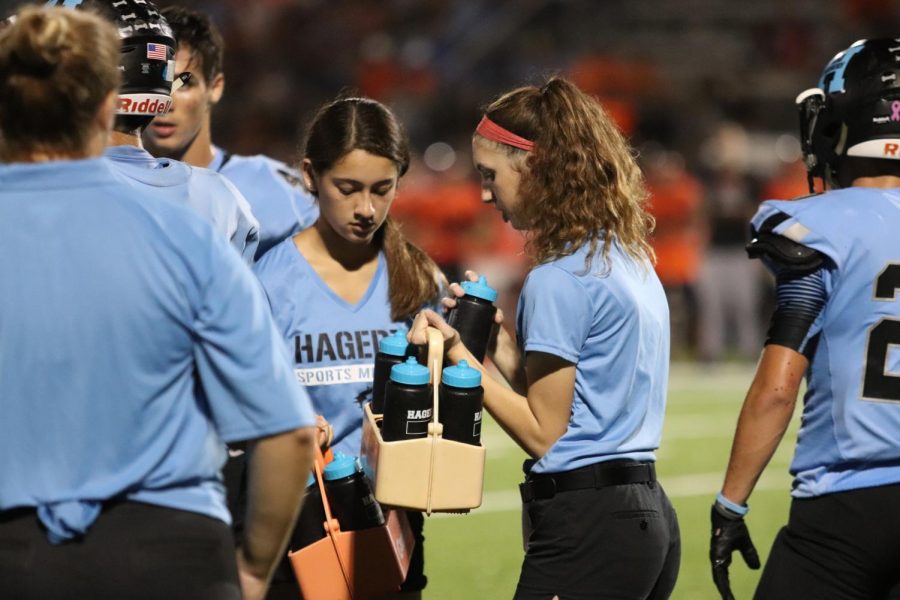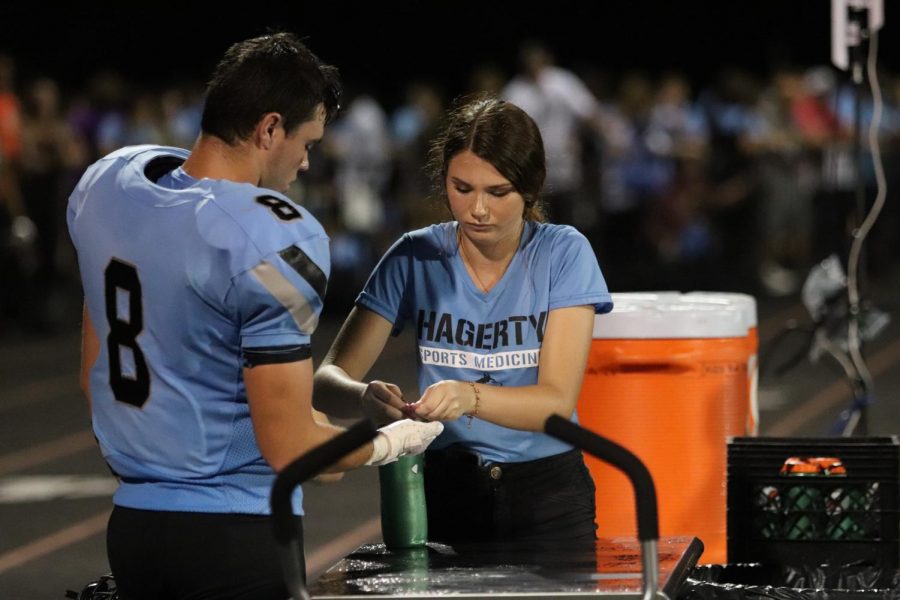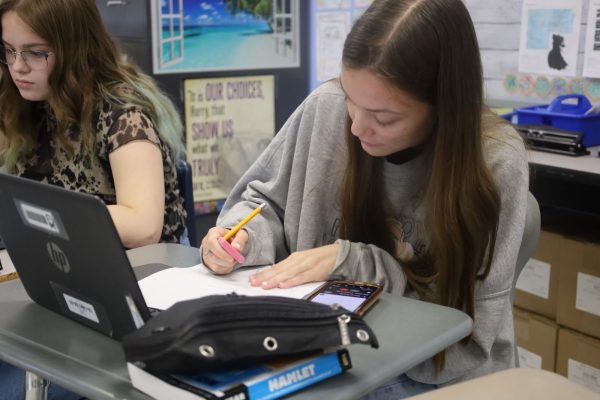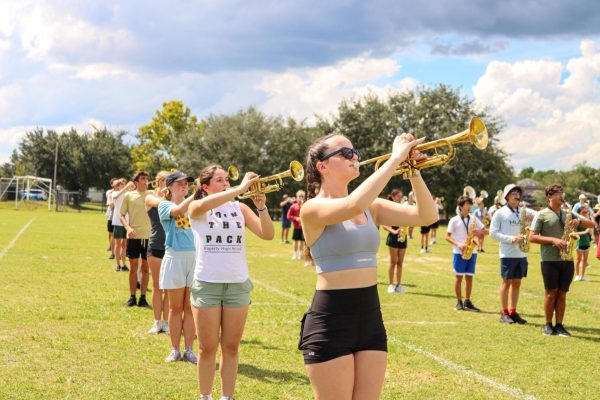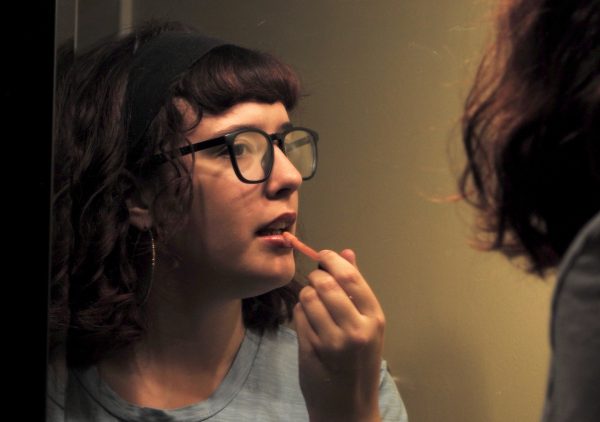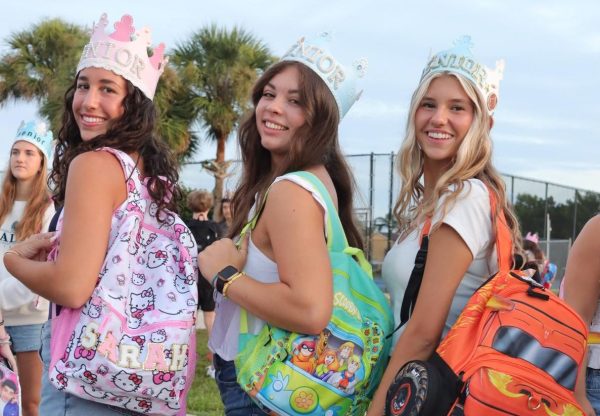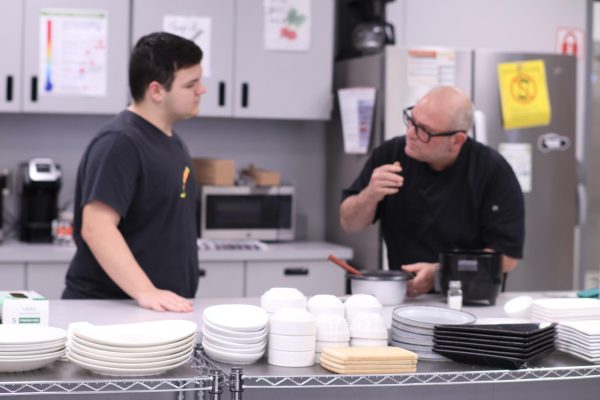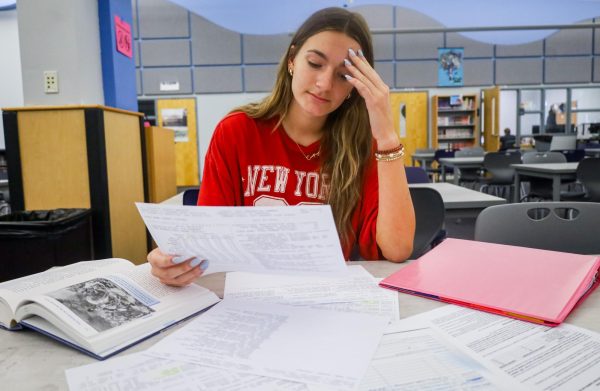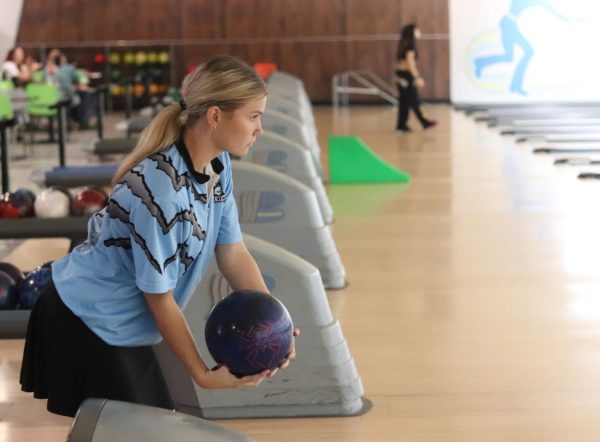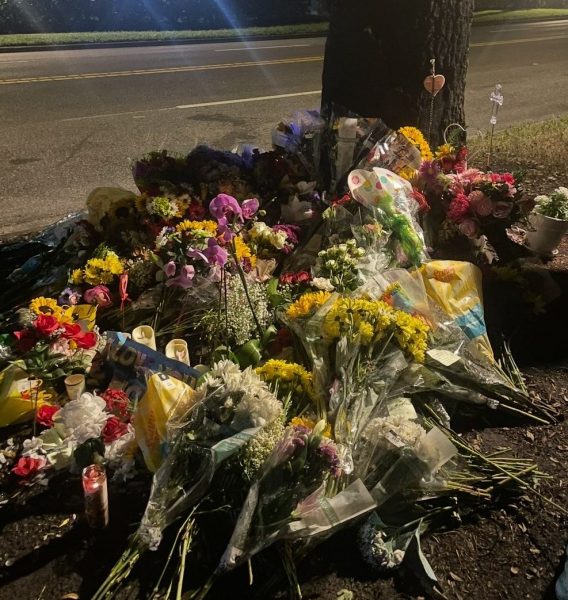More than a water girl
From preparing them to giving them medical instructions, student athletic trainers are the ones behind the athletes.
photo by Juliana Joyner
Sophomores Abigail Nicolas and Sophie Ramirez are on “captains duty,” which means when a time out is called they must follow the coach to make sure the players have quick availability to water.
Under the Friday night lights, running up and down the sidelines, covering gashing wounds and making sure everyone is hydrated. Student athletic trainers are the sisterhood that works behind the scenes.
Student trainers help all sport teams with medical issues. They attend practices and work the games under the two certified athletic trainers, Keith Miessau and Megan Wilkins, who switch off each semesters teaching Care and Prevention.
“We care for all of the athletes in their sport depending on the season,” senior Kathryn Peabody said. “Football is a bigger sport that we do a lot more for, so we are out there at practices every day with water while monitoring injuries.”
During games, student trainers also make sure that the coaches, referees and opposing team are well taken care of. They always have to be aware of what is going on, in case they have to run to medically assist an athlete or to make sure the referees have water. They make sure they are prepared with gauze and tape, they prepare injury ice for the opposing team, and they make sure they have water for everyone.
“We do a lot more than just go to the games,” sophomore Abigail Nicolas said. “For football specifically, we go to their practices every day from right after school until 6p.m. We do everything that we would do for a game, but it is a bit less stressful because it’s just practice.”
Most of the students learned about the program through the Care and Prevention class that taught them the anatomy of the body and how to identify and cure different sport injuries. Joining the program not only allowed students to get a hands-on learning experience but taught them important social skills.
“I have learned so much besides taping,” Nicolas said. “I have learned to be independent and take direction, how to talk to the athletes, how to act under pressure and how to watch for the right things.”
While trainers have a lot of responsibilities, some people overlook or belittle their role. Many girls, including Nicolas, have been called “water girl,” a term no athlete or coach is allowed to use. They should either be called by their name or as “trainer.” If someone does call them “water girl” they must ask them politely to not refer to them as that.
Spending six or more hours after school for practices and long nights working all the games, the girls created an “unbreakable bond” with their fellow trainers and with the certified trainers.
“All the girls there are my best friends, and same with the two head trainers. We all have a special bond,” Nicolas said. “We all know that we are there for each other.”
Most of them joined the program to get hands-on experience to help them decide what they want to major in after school, and to see if this is something that they would pursue as an adult.
“I’ve always been interested in the medical field and I thought this was a great way to get experience while in school,” Peabody said. “Now I want to further my athletic training and get a degree.”
Your donation will support the student journalists of Hagerty High School. We are an ad-free publication, and your contribution helps us publish six issues of the BluePrint and cover our annual website hosting costs. Thank you so much!


